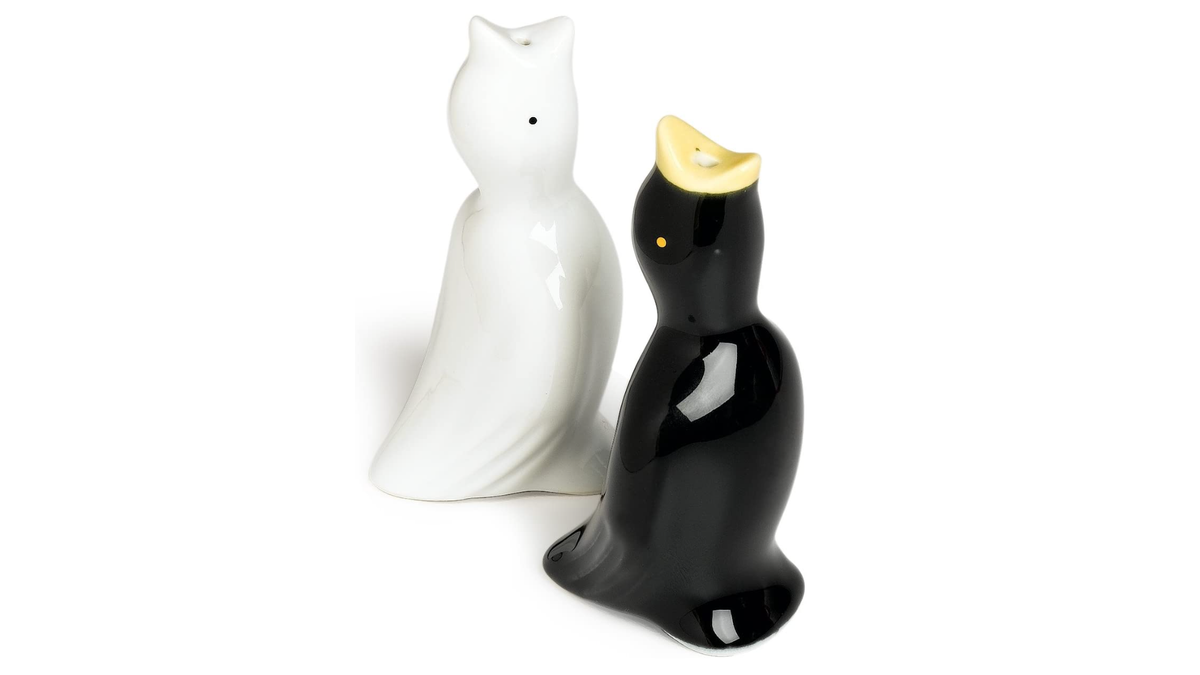[ad_1]

Checking a pie for doneness can be a tricky business. This is especially true for double crust pies (because everything’s hidden on the inside). Taking your pastry wrapped parcel out of the oven before it’s cooked through can lead to watery or raw results, and you may have found yourself considering a tool like a pie bird to signal when your pie is ready. Sorry to break the news, but pie birds aren’t really doing much at all besides looking alarmed.
Pie birds are usually hollow, bird-shaped ceramic tubes that nest the middle of a pie. They’ve also been called pie chimneys, which is a little more descriptive, especially since they weren’t always bird shaped. They’re from a time, long ago, when they perhaps served multiple purposes, like venting a double-crusted pie while physically supporting expansive, feast-sized pie crusts, assisting with uneven heating in wood burning ovens, or speeding up cooking by providing a heat conductor in the center of a very large, or densely filled meat pie.
The bird, or chimney, nestles into the center of the pie filling, sticking out about an inch or so, with the top crust draped over it. The pie bird pokes through, creepily, and the chef seals the upper crust around the edges and snugly around the bird. The whole thing goes in the oven until steam starts spewing from the pie bird/chimney. The heavy flow of steam signals that the remaining water in the filling has reached its boiling point of 212°F in the center of the pie, not unlike a tea kettle whistling. The chef sees the steam and knows the pie is done.
With modern ovens, uneven cooking is no longer much of a worry, and standard pie plates lean toward a very manageable 9- or 10-inch diameter, so pie crusts don’t need extra support, and cooking through to the center before the outside burns isn’t much of a struggle. The pie bird isn’t doing all of that other practical stuff, but it’s still functioning to vent the pie and erupt in steam. That’s cute. The thing is, you don’t need a pie bird to vent your pie or show you steam. Pies do need vents so the steam can escape in a controlled manner, otherwise the pastry can rip, and all of the filling bursts out the sides and onto the bottom of your oven. Vents are just openings in the upper crust, and these days we commonly vent with decorative patterns, like a lattice top, a circular cut-out, or a few simple cuts in the center.
Checking for doneness in a pie is usually as simple as observing some signals and setting yourself up with some “windows” so you can see more clearly. I like a literal window for the bottom crust, so I always use a clear pie dish. For the top crust, cut a decent-sized, circular vent in the center so you can see when the filling is bubbling. As the pie bakes, look at the bottom pastry of the pie and check to see how browning is coming along. When you notice an even brownness across the crust, you can start paying more attention to the vents. Check the vents for steam, and bubbling filling. The edges will begin to bubble, and you’ll know the center will be coming along shortly. If your filling is bubbling in the center, you’re as good as a pie bird.
For pies fillings that are low in hydration, like meat or vegetable pies, it could be hard to see the steam coming through the vents, or you might not want the meat to cook to the quite high temperature of 212℉. In this case, use a meat thermometer, or probe thermometer. Poke the reader down through the center vent that you made sure to cut, and get an accurate temperature. As long as the pastry is browned to your liking, you can take out the pie at just the right moment. Don’t get me wrong, I’m a supporter of collecting and safely using vintage kitchen items, even if they’re unwieldy and semi-useless. I’d never criticize your bold display of pie birds along the window sill. You just don’t really need them in your pie.
Source link

